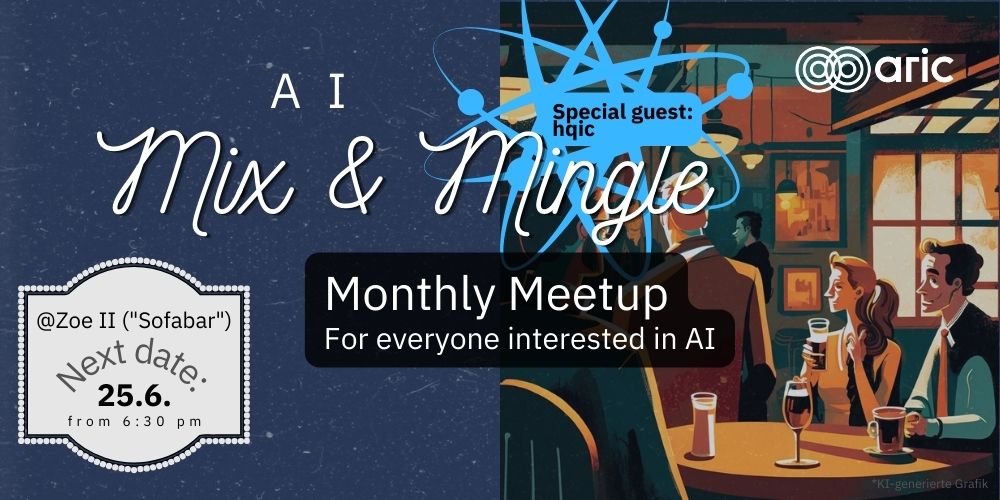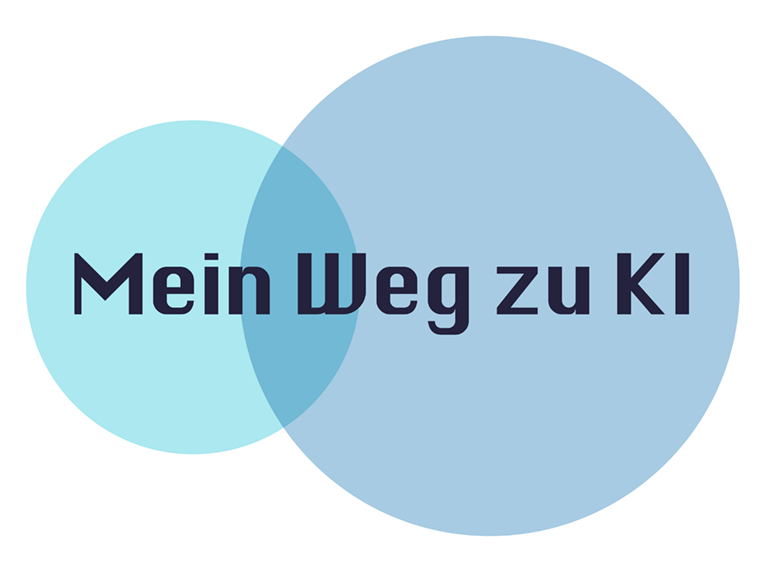In the future, artificial intelligence (AI) methods will be indispensable for companies. AI is not witchcraft, but is essentially built on mathematics. It is now important to take away the fears of entrepreneurs and to show the possible applications of AI in companies. (Reading time 4 min)
The first step is always the hardest….
Certainly, the first point of contact with artificial intelligence is not an easy one. The daily business is humming and takes up an immense part of the working day. In addition, it is often difficult for many people to deal conscientiously with a “new” technology, let alone to find points of contact in their own company.
We have been hearing for some time that data is the new gold of business. More specifically, however, information from data is the new gold. Because data is (often) a dime a dozen. However, many ask themselves how they can use this data beneficially for their company without making themselves liable to prosecution.
One way is to gain experience from data reflecting the past and thus be able to make predictions for dealing with similar situations in the future. This is associated with terms such as Machine Learning (ML), Deep Learning, Reinforcement Learning, Artificial Neural Networks …. These methods belong to the discipline of artificial intelligence. But how do I personally get access to this exciting topic?
Fears of contact with AI – do you really need to have them?
What exactly is AI? Artificial intelligence is a sub-field of computer science and, in addition to elements from computer science, today includes applied mathematics as an essential component. These are, among others, methods from stochastics, linear algebra, etc. So anyone who has already had a hard time with these topics at school or university will now probably shy away from using software with AI methods again. However, they don’t need to know the methods and algorithms down to the last detail to use them in a company, because that’s what AI specialists are for. Your job as a leader is to determine the area of application for AI methods.
Isn’t it rather fear of contact with a supposedly unknown technology and a lack of understanding of how to deal with the mathematical methods of AI that is the reason for ignoring the possibilities that present themselves? Is it also the fear of the loss of control and the increasingly transparent personality of each individual, be it in professional life or especially in private life?
Using artificial intelligence – or do I not dare?
As a rule, a manager in a company will only use the tools that he knows and with which he has had positive experiences. Especially when it comes to control of machines and transparency of data and processes in the company. If there are positive experiences at other companies, one is more likely to deal with a new topic. Artificial intelligence is being used successfully in companies, but unfortunately the word has not yet spread far enough.
Especially when it comes to the mid-market and then Corona times, businesses have the most to do with themselves and are struggling to survive. Still, right now is the time to look at the post-Corona crisis. Artificial Intelligence methods will play an increasingly important role in future-proofing a company, because AI is anything but hype that will quickly pass. Companies that are already using AI today are more successful than when they were not yet using AI. And the companies cut across all industries:
- Medicine
- Logistics
- Sales and marketing
- manufacturing companies
- FinTech
How can a company get access to AI?
As a leader, how can I approach the topic of AI?
A fundamental consideration when dealing with such a topic for the first time, which is still very heavyweight for many, is weighing up what I fundamentally want to achieve with the use of AI. Two broad storylines open up here. Artificial intelligence is seen in most contextual representations as a new, disruptive approach for an industry in general or a company in particular. This view is primarily based on the fact that AI is seen as a driver for new business models and opportunities. Artificial intelligence, however, like many other advanced approaches from the vast expanses of digitization (even if it often feels like a dense, insurmountable forest), can initially only be used as a tool; more precisely, as a support tool in a familiar business environment. In line with the Far Eastern-influenced corporate cultures of resource-conserving, waste- and avoidance-oriented management approaches, AI can in particular streamline existing processes.
The confrontation with AI – which is no longer a technology of the future but has long since become a present-day technology – is imperative. Especially when AI is still a green field, but one on which something fruitful is expected to flourish in the foreseeable future, it is essential to address success-critical elements early on. For example, a company that sees its first AI applications in a time frame of one to two years should still take care of the basic building blocks of that AI application today. This means the creation of a database in the form of complete and valid data on the basis of which an AI system can “learn and work” at a later point in time.
The resulting questions need to be urgently asked and answered by every entrepreneur in relation to Artificial Intelligence:
- What can AI currently do?
- What potential does AI offer for me and my industry? What are the good practices and their impact?
- What transformations in data structures, value creation processes, actual production and business models will this entail?
- What acceptance problems at management level and among employees need to be overcome?
- What are the requirements, procedures and resources for developing AI in the company?
Artificial Intelligence Center Hamburg (ARIC) eV
There is no one-size-fits-all answer to these questions. Each company, each industry must answer this for the respective concrete situation. How far is the data availability and quality, how far do my security measures turn out to be robust, which AI know-how is important for me, etc.? Finding the answers to these questions is not easy. This is where the ARIC helps you
The Artificial Intelligence Center (ARIC) is the AI center officially supported by the City of Hamburg, in which the various activities and actors with specific knowledge from the scientific, economic and socio-political fields in the Hamburg metropolitan region are bundled. The ARIC offers a single point of contact for companies and institutions that are not (yet) familiar with artificial intelligence, ranging from information and training to project planning and implementation of AI use cases. Although the focus here is on Hamburg, ARIC operates in cooperation with other local institutions throughout Germany and maintains good relationships and collaborations with leading hotspots in the field of AI worldwide, including Estonia and the other Baltic States, Israel, Canada and the Czech Republic.
Authors: Steven Dehlan is Project Manager for Artificial Intelligence at ARIC e.V. (dehlan@aric-hamburg.de)
Carsten Hagemann is an independent consultant. He is an expert in digitalization and AI systems (ch@hagemann-consulting.com).




